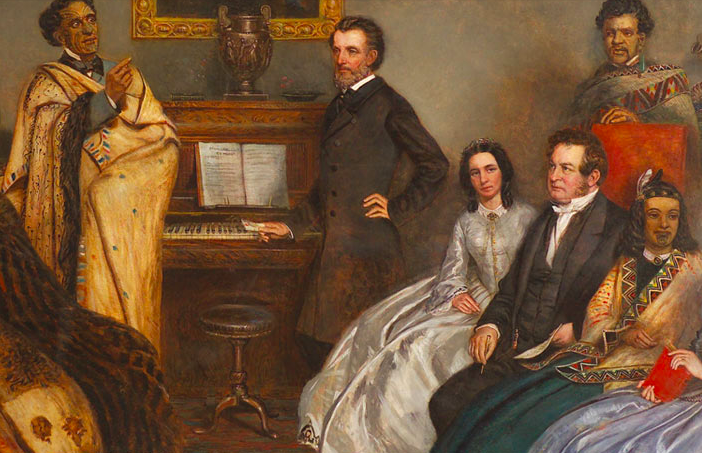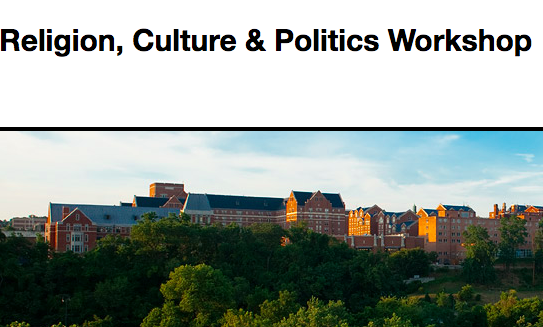
“Treaty People and the Spiritual Vulnerability of Colonial Settlement”, University of Otago, Dunedin, Aoteoroa/New Zealand, April 20, 2018.
Religion and memory on the land

“Treaty People and the Spiritual Vulnerability of Colonial Settlement”, University of Otago, Dunedin, Aoteoroa/New Zealand, April 20, 2018.
The main question that this seminar poses is if, and how, bodies, but also other material forms, can be considered secular. If so, how do we theorise and conceptualise secular embodiment and other material forms? Which new understandings about the secular or secularity may emerge from these explorations? What are suitable approaches and methods to study secular materiality?
Master Class at “Does the Secular Matter: Rethinking Secular Materiality and the Secular Body” a NOSTER Thematic Workshop at the University of Utrecht, Netherlands, April 18, 2017.

In this presentation, I considered the significance for studies of missionary colonialism of what scholars call the “photographic event,” focusing on a diary written by an Anglican missionary-journalist, Frederick Du Vernet, during his 1898 trip to visit the Ojibwe of Rainy River in Treaty 3 territory (also known in Canada as northwestern Ontario). Du Vernet recorded both Ojibwe resistance to and requests for his picture-taking. His stories reveal how the event of taking photographs marked his own longing to capture spiritual stories and presences and provoked a variety of Ojibwe responses to such forms of visual capture.
“Photography, Resistance, and Re-mediation on Manidoo Ziibi” Centre for Research on Colonial Culture, University of Otago, Dunedin, Aoteoroa/New Zealand, April 11, 2018.

In the so-called “New World,” monarchs of several nations legitimized settler claims to Indigenous territory by resting their authority on a Christian-inflected cosmology of land that asserted a monarch’s divinely-ordained right to rule, even over lands very far from their original dominion. In the British Empire, this right to rule was most powerfully “landed” in the idea of “Crown tenure,” a legal fiction—or creation story—that held that all lands belonged, in a sense both spiritual and temporal, to the monarch. At this Religion, Culture, and Politics Workshop, I examined what many scholars have pointed to as the tricky metaphysical grounding of monarchical claims to land in colonial modernity (which is, arguably, all modernity).
“Crown Land and the Spiritual Jurisdiction of Colonial Property”, Religion, Culture, and Politics Workshop, Berkley Center for Religion, Peace and World Affairs, Georgetown University, Washington, DC, March 29.
The question of whether “we” live in a secular age depends greatly on who is asking and where they stand. In this class, we considered the weight of the secular in Commonwealth (or stolen-wealth?) settler-colonial nations through the prism of the concept of “spiritual jurisdictions,” working with Hussein Agrama’s contention that the secular is a concept that depends on the persistent adjudication of a wavering line between the religious and the political.
“Spiritual Jurisdictions in a Secular Age”, Master Class at Institute for Advanced Studies in the Humanities, University of Queensland, May 16, 2018.